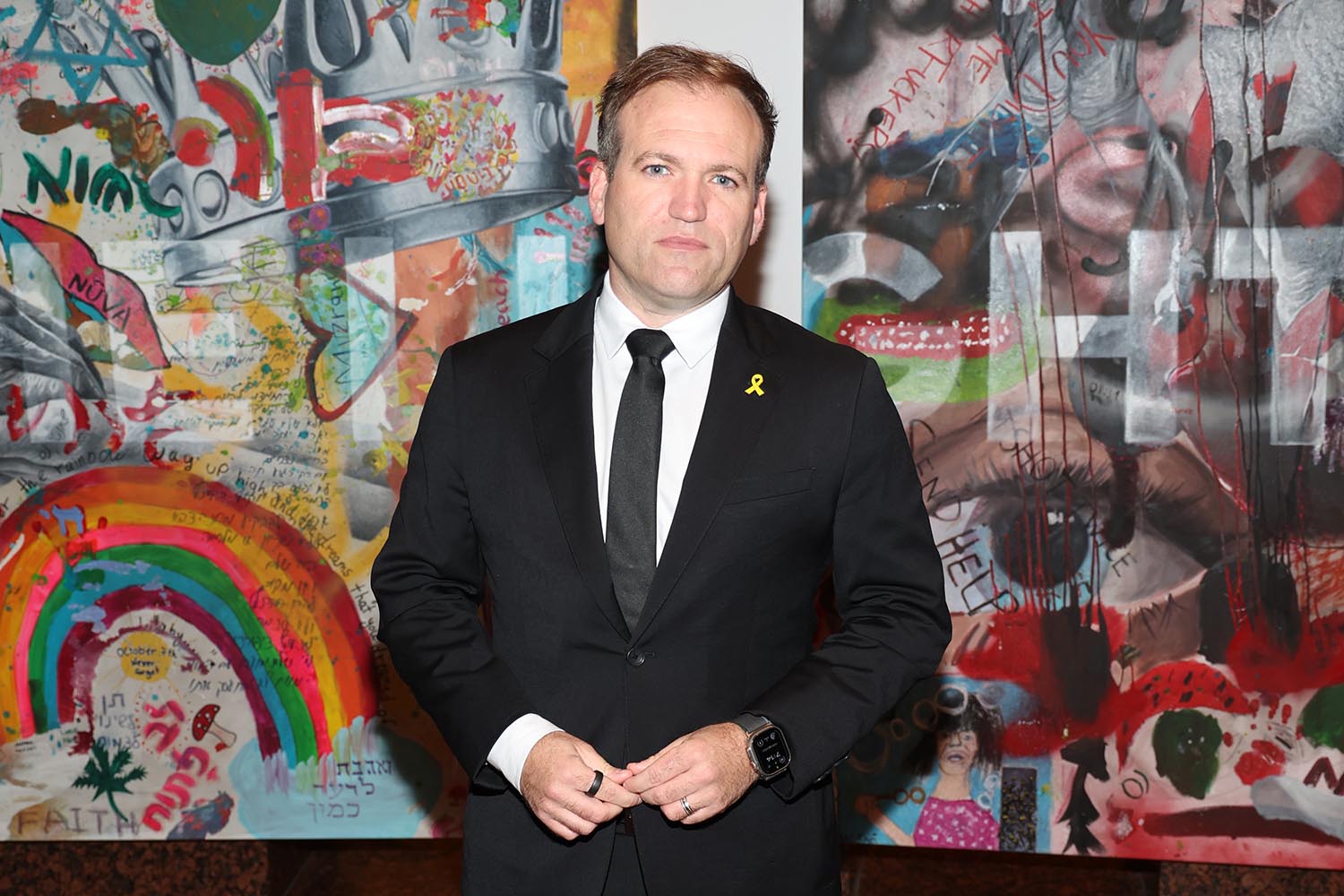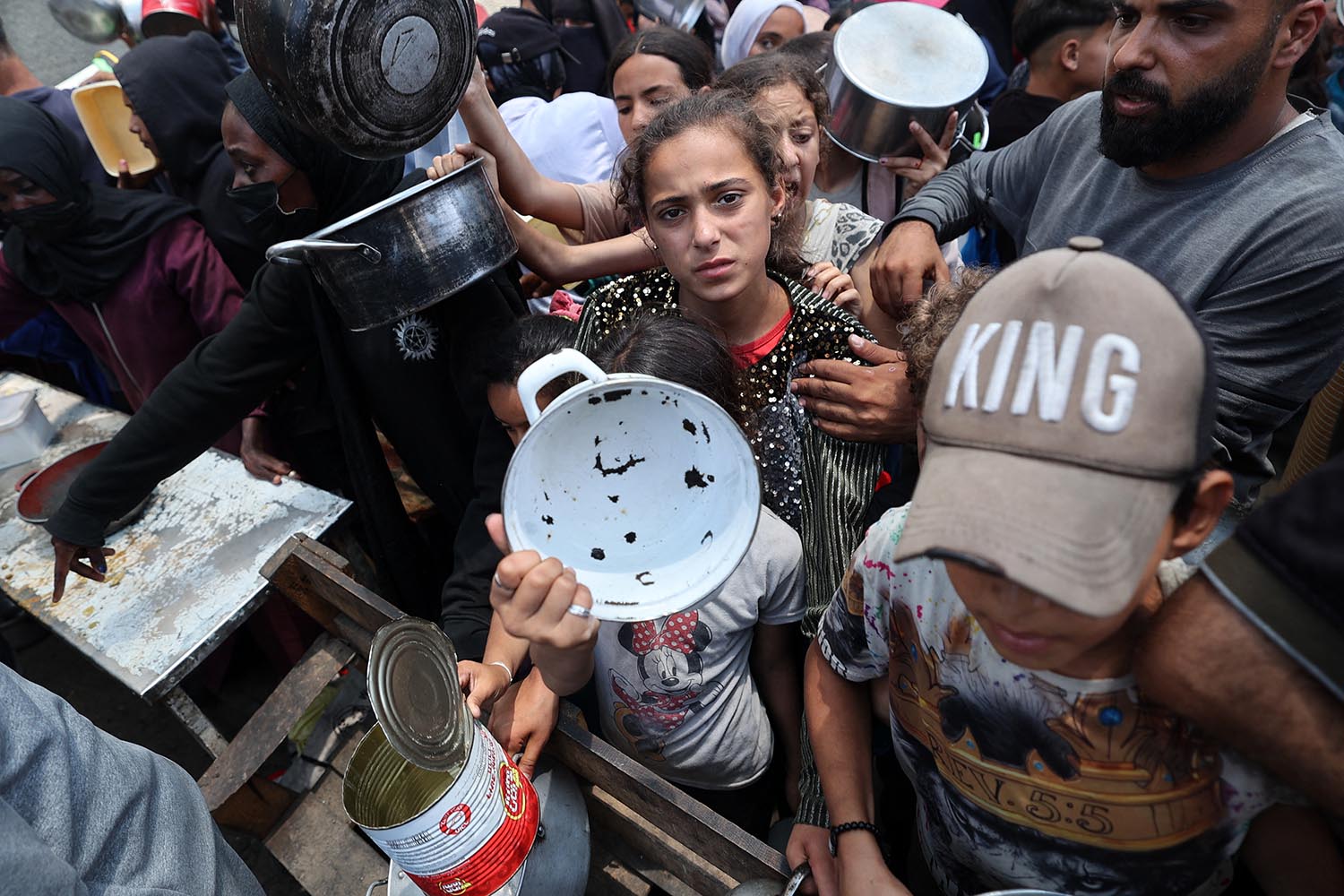The Reverend Johnnie Moore is a rising star of the US evangelical movement, an experienced public relations executive, and leads a Christian advertising agency that counts a theme park built around a 510ft-long model of Noah’s ark in Kentucky as one of its flagship projects.
During Donald Trump’s first term he was appointed to the president's council of evangelical advisers, drawing criticism after sharing a photograph of the group laying their hands on Trump to bless him during a prayer in the Oval Office.
Adding to the eclectic CV is a year-long stint as chief of staff for Mark Burnett, the British TV executive who created The Apprentice and transformed Trump’s career.
Then, last week, he was given his most high-profile role so far: chairing the controversial privatised and militarised aid operation in Gaza. The Gaza Humanitarian Foundation lauded him as someone with “a proven record of principled leadership and hands-on humanitarian work”. This appeared to be a reference to his 15 years on the board of WorldHelp, which donates relief and builds wells alongside efforts to distribute Bibles and build churches worldwide. Ten years ago, Moore collaborated with conservative radio host Glenn Beck to evacuate some 150 Christians from northern Iraq.
But there are no indications that Moore has ever been involved with the day-to-day realities of aid distribution, particularly in a situation as challenging as Gaza.
Since it began work two weeks ago, GHF has drawn controversy for its plan to deliver aid to more than 2m people considered by the United Nations to be on the brink of starvation, using armed American private contractors. Distribution was paused at the few points operated by GHF last week after Israeli forces opened fire on crowds trying to reach them.
In two instances of violence days apart, the International Committee of the Red Cross said that 48 were killed and hundreds were treated, mostly for gunshot wounds, at its nearby field hospital. The Israeli military said troops “carried out warning fire” after crowds deviated from access routes.
GHF countered that “at no point did violence occur” and blamed the pause on “excessive crowding that made it unsafe to proceed”.
Moore and his public relations firm, JDA Worldwide, declined interview requests from The Observer. But writing for Fox News, Moore lashed out at GHF’s critics and UN bodies, as well as accusing UN chief António Guterres of spreading lies about fatalities as Gazans sought to obtain aid.
“Instead of just focusing on feeding Gazans, GHF humanitarians must fight a profane information war,” he said. “Join us or get out of our way.”
Newsletters
Choose the newsletters you want to receive
View more
For information about how The Observer protects your data, read our Privacy Policy
Many of those who were supposed to be involved in the project have chosen the latter option. GHF’s executive director, Jake Wood, resigned last month, saying it was not possible for the organisation to adhere to “the humanitarian principles of humanity, neutrality, impartiality, and independence”.
The former head of the UN’s World Food Programme, David Beasley, has remained resolutely silent on his involvement, after an initial GHF document claimed he was on board.
Xavier Abu Eid, a Palestinian Christian scholar, said of Moore’s appointment: “To pick someone like Moore, someone who works in public relations without real experience in humanitarian aid, this tells you that the priority is not relief distribution.” He branded the project “nothing more than mercenaries distributing aid”.

Rev Johnnie Moore has told staff at the Gaza Humanitarian Foundation they must fight an information war.
Despite Moore’s book on the threat to Christians in the Middle East, Abu Eid questioned how his involvement helped Gaza’s tiny Christian community, with most sheltering in the enclave’s two remaining churches in the north, miles from GHF’s distribution points in the south. He feared for those sheltering in the Holy Family church in Gaza City after one of his regular phone calls with pastor Gabriel Romanelli earlier this week. The pastor, who heads Christian relief efforts inside Gaza, was ill after bombardments in the area around the church, Abu Eid said, and had received no communications from GHF.
He said: “This is not about creating a new model of humanitarian aid, but how to turn it into a politically motivated project to support ethnic cleansing.”
Moore’s appointment further embroils the Trump White House in a project that has drawn criticism for its attempt to subvert the United Nations, which has refused to work with the initiative after a months-long Israeli blockade that has brought Gaza to the brink of starvation. Israeli prime minister Benjamin Netanyahu also admitted in a social media post this week that his government is arming a clan in southern Gaza accused by aid groups of stealing from relief trucks, with Netanyahu defending the choice as a counterweight to Hamas.
“The world is watching, day after day, horrifying scenes of Palestinians being shot, wounded or killed in Gaza while simply trying to eat,” said the UN’s head of relief, Tom Fletcher, last week. Last month the UN presented a sweeping plan intended to satisfy Israeli demands for security to the authorities, offering to “act without delay” to deliver aid across Gaza without any risk of diversion. The US vetoed a resolution at the UN Security council to demand an immediate ceasefire and unimpeded aid access, with ambassador Dorothy Shea instead demanding that the UN support GHF.
Michael Milstein, a former advisor on Palestinian affairs in the Israeli military body that oversees aid into Gaza, said the only available figures on the amount of aid distributed by GHF come from within the organisation, making it difficult to verify.
“I am not sure this is anything more than a public relations project...but I find a lot of gaps between its image and the reality,” he said.
Photograph by Eyad Baba/AFP, Getty

